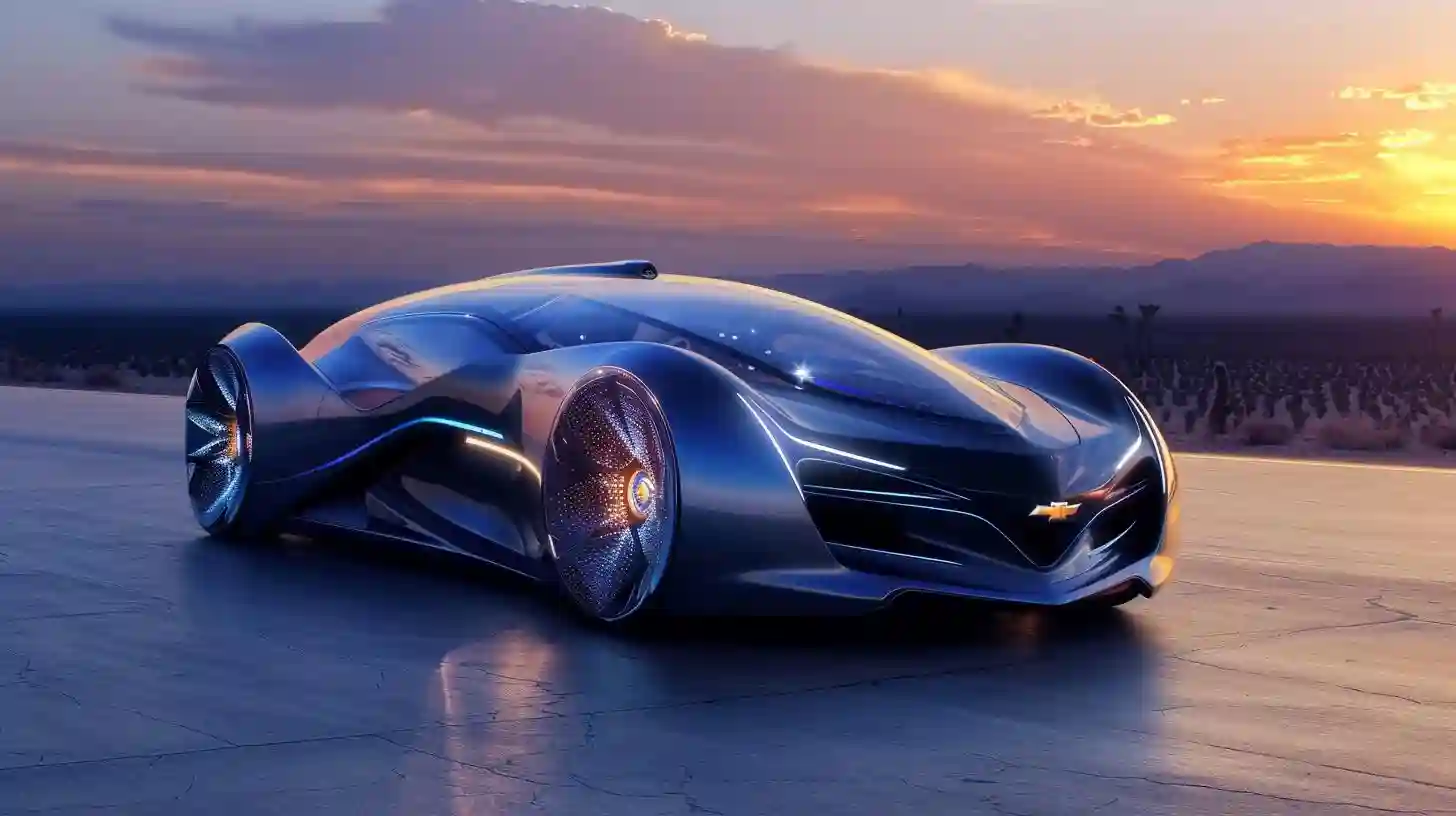
Автомобили марки Chevrolet всегда привлекали внимание не только своим дизайном, но и инновационными решениями, которые компания внедряет на протяжении более чем ста лет присутствия на рынке. Одной из наиболее интересных и запоминающихся разработок стали концепт-кары с дизайном, вдохновленным природой. Одним из таких концептов являются автомобили с уникальной идеей крыльев, которые символизируют свободу и динамичность.
Крылья в дизайне автомобилей обычно ассоциируются с легкостью и скоростью. Chevrolet, как одна из ведущих автомобильных марок, использует эту метафору в своих концептуальных разработках. Один из ярких примеров можно найти в концепт-каре, который был представлен на международных выставках. Этот автомобиль демонстрирует не только элегантный внешний вид, но и передовые технологии, которые позволяют ему выделяться среди конкурентов.
Дизайн автомобиля с крыльями вдохновлен природными формами и динамикой полета птиц. Комплексные линии кузова, плавные формы и уникальные элементы интерьера создают гармоничное сочетание функциональности и эстетики. Важнейшей задачей для дизайнеров было добиться ощущения легкости и скорости, что стало возможным благодаря использованию современных технологий и материалов. Корпус автомобиля выполнен из легких композитных материалов, что позволяет повысить аэродинамические характеристики и улучшить топливную эффективность.
Концепт-кар Chevrolet с крыльями привлекает внимание не только внешним видом, но и передовыми технологическими решениями. Автомобиль оснащен интеллектуальными системами управления, которые делают вождение безопасным и комфортным. Использование сенсорных экранов и голосового управления позволяет водителю легко и быстро взаимодействовать с различными функциями автомобиля. Эти технологии делают поездки более приятными и менее утомительными, особенно в условиях городского трафика.
Одной из ключевых особенностей этого концепт-кара является его адаптивная система подвески, которая реагирует на изменения дорожных условий и автоматически подстраивается под стиль вождения. Это важное решение обеспечивает высокий уровень комфорта и управляемости, а также увеличивает безопасность при движении по сложным маршрутам.
Еще одной важной составляющей автомобильной концепции Chevrolet является внимание к экологичности и устойчивому развитию. Разработчики стремятся сократить негативное воздействие на окружающую среду, поэтому концепт-кар с крыльями располагает гибридной силовой установкой. Это позволяет автомобилю эффективно использовать как бензиновый, так и электрический двигатель. Переход на электрический режим осуществляется автоматически в зависимости от условий движения и потребностей водителя. Такое решение не только способствует снижению выбросов, но и позволяет автомобилистам сэкономить на топливе.
Внутреннее пространство концепт-кара также претерпело значительные изменения. Интерьер выполнен с использованием высококачественных материалов, которые делают его стильным и современным. Просторный салон позволяет с комфортом разместиться как водителю, так и пассажирам. Мягкие сиденья, эргономичная планировка и усовершенствованная мультимедийная система создают атмосферу уюта и спокойствия во время поездки.
Крылья концепт-кара играют не только эстетическую, но и функциональную роль. Они могут выполнять функцию солнечных панелей, которые обеспечивают дополнительную энергию для работы вспомогательных систем автомобиля. Таким образом, сочетание стиля и технологий позволяет существенно повысить общую производительность и эффективность.
Важной частью разработки таких концепт-каров является тестирование и оценка характеристик. После создания прототипа команда инженеров осуществляет многочисленные испытания, чтобы убедиться в надежности и безопасности автомобиля. Такой подход позволяет выявить и устранить возможные недостатки, прежде чем автомобиль поступает в серийное производство.
На выставках и автосалонах концепт-кары Chevrolet всегда вызывают большой интерес публики и прессы. Дизайнеры и инженеры получают обратную связь от посетителей, что позволяет им корректировать и улучшать свои идеи. Они учитывают мнение экспертов и потенциальных покупателей, а также анализируют текущие тренды на рынке. Это создает основу для дальнейшего развития и внедрения инновативных решений.
Несмотря на то, что концепт-кары в большинстве случаев остаются лишь экспериментальными моделями, они играют ключевую роль в определении будущего автомобильной индустрии. Chevrolet как крупный игрок на рынке стремится опережать время, реализуя идеи, которые могут изменить представление о функциональности и дизайне автомобилей. Концепт-кар с крыльями — это только одна из многих смелых идей, которые могут появиться в будущем.
В последние годы Chevrolet активно работает над созданием автомобилей, сочетающих в себе силу традиционного дизайна и современные технологии. Концепт-автомобиль с крыльями является отличным примером того, как можно соединить магию природы с инженерными достижениями. Таким образом, Chevrolet открывает новые горизонты как в области дизайна, так и в области технических решений.
Создание таких автомобилей требует от команды многоуровневого подхода, включая работу дизайнеров, инженеров, маркетологов и экологов. Это коллективное усилие приводит к созданию продуктов, которые соответствуют изменениям в потребительских предпочтениях и требованиям времени. Технологии, использованные в концепт-каре с крыльями, могут стать основой для будущих моделей и даже серийных автомобилей.
Параллельно с этим Chevrolet также активно развивает свои подходы к автомобильному дизайну, основываясь на культурных и социальных трендах. Компания понимает, что автомобиль — это не только средство передвижения, но и символ статуса, стиля и индивидуальности. Концепт-кар с крыльями отражает этот подход, демонстрируя инновации, которые полностью соответствуют современным требованиям общества.
Таким образом, концепт-кары марки Chevrolet становятся не просто展示 новинок, а важной частью его корпоративной стратегии, направленной на исследование потенциального будущего автомобильного рынка. Каждое новое представление — это шаг в сторону создания более безопасных, удобных и экологически чистых автомобилей.